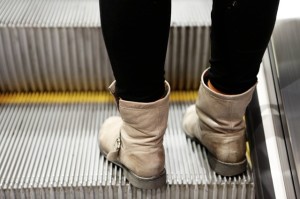- Calls to this hotline are currently being directed to Within Health, Fay or Eating Disorder Solutions
- Representatives are standing by 24/7 to help answer your questions
- All calls are confidential and HIPAA compliant
- There is no obligation or cost to call
- Eating Disorder Hope does not receive any commissions or fees dependent upon which provider you select
- Additional treatment providers are located on our directory or samhsa.gov
DBT During the Holidays

Contributor: Crystal Karges, MS, RDN, IBCLC for Eating Disorder Hope
DBT, or Dialectical Behavioral Therapy, can be a helpful tool for maintaining recovery during the holidays. DBT is a form of psychotherapy designed to encourage others to change patterns of behaviors that may be destructive or harmful, such as substance abuse, suicidal ideations, or eating disorder behaviors.
In this approach, individuals are guided to increase their cognitive regulation of triggers in their environment and reactive states in response to those triggers. DBT also incorporates an aspect of mindfulness, which helps individuals stay focused in each present moment and recognize how they might be feeling non-judgmentally.
DBT and Eating Disorders
The practice of DBT has been proven effective for various conditions and disorders, including people with borderline personality disorder [1]. Utilizing the DBT approach can be an invaluable tool for the individual recovering from an eating disorder, especially in situations that trigger stress or anxiety.
The holiday season can be a time that evokes many emotions, particularly for the eating disorder sufferer. Learning how to approach these situations using DBT techniques can be a helpful tool for maintaining recovery for the long-term.
Mentioning DBT to a Counselor
Dialectical behavior therapy is a form of treatment that would be utilized by a qualified therapist that is trained in this technique. If you are interested in learning more about this form of psychotherapy and how you can integrate this in your eating disorder recovery treatment, be sure to mention DBT to your doctor and/or treatment team.
If you are searching for a therapist or counselor, be sure to inquire if they practice this form of therapy.
Don’t Let the Holidays Deter You
 The holiday season is a stressful time for many individuals who are in recovery for an eating disorder. This stress triggered by this time of year will not deter your recovery so long as you are adequately prepared to face what is ahead.
The holiday season is a stressful time for many individuals who are in recovery for an eating disorder. This stress triggered by this time of year will not deter your recovery so long as you are adequately prepared to face what is ahead.
While you cannot necessarily prepare for everything, having healthy coping skills for uncertain situations can be invaluable to preserving and maintaining your recovery from an eating disorder.
Learning the DBT techniques can be beneficial to you as it may decreases the frequency of eating disorder behaviors and reinforces the use of appropriate coping mechanisms for dealing with life stressors, including pressures that may be triggered by holidays.
Community Discussion – Share your thoughts here!
What is your experience with DBT in eating disorder recovery?
References:
- Linehan, M. M.; Armstrong, H. E.; Suarez, A.; Allmon, D.; Heard, H. L. (1991). “Cognitive-behavioral treatment of chronically parasuicidal borderline patients”. Archives of General Psychiatry 48: 1060–64.
Last Updated & Reviewed By: Jacquelyn Ekern, MS, LPC on December 18th, 2014
Published on EatingDisorderHope.com

The EatingDisorderHope.com editorial team comprises experienced writers, editors, and medical reviewers specializing in eating disorders, treatment, and mental and behavioral health.

